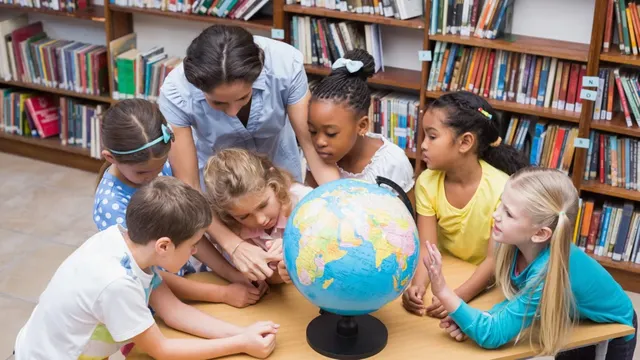What Skills are Developed in Early Childhood Education Programs
Early childhood education (ECE) programs play a major role in the development of young children. These programs, usually encompassing children from birth to age eight, lay the foundation for lifelong learning and development. The skills developed during these formative years are diverse and extensive, impacting cognitive, social, emotional, and physical growth. In this article, we will take a look at some of the skills that are developed through early childhood development programs.
Cognitive Skills
Cognitive skills are one of the major development skills in early childhood education. Critical thinking, problem-solving, memory, and language development are some of these skills. At a centro educación infantil Valencia (Valencia early childhood education center), children are exposed to a variety of activities that stimulate their cognitive abilities. Through games, storytelling, and interactive lessons, children learn to process information, develop reasoning abilities, and enhance their memory skills. These academic foundations are important for their academic success in the future.
Language Development
One important component of early childhood cognitive growth is language development. The development of language, phonemic awareness, and comprehension are given the highest priority in ECE programs. Activities such as reading aloud, singing songs, and engaging in conversations with peers and educators help children develop strong language skills. These skills are not only important for communication but also for reading and writing proficiency as they progress through their educational journey.
Numeracy Skills
Basic numeracy skills are also introduced in early childhood education. Play-based learning teaches kids how to identify numbers, understand quantity, and perform basic arithmetic operations. Counting games, puzzles, and hands-on activities make learning math concepts enjoyable and engaging. Developing numeracy skills at a young age sets the stage for more complex mathematical learning in the future.
Social Skills
Social skills are another important skill development in early childhood education programs. At centro educación infantil Valencia (Valencia early childhood education center), children interact with their classmates and teachers in a structured environment, learning essential social social behaviors and norms. Children gain empathy, collaboration, and conflict-resolution abilities from these interactions.
Cooperation and Teamwork
Through group activities and collaborative projects, children learn the importance of working together and sharing. Through these experiences, they learn how to work in a group, listen to others, and take turns. These skills are important for social interactions as well as for future job settings where teamwork is frequently required.
Physical Skills
Physical development is another important aspect of early childhood education. ECE programs incorporate activities that enhance both fine and gross motor skills. Fine motor skills involve the coordination of small muscles, such as those used in writing, while gross motor skills involve larger muscle groups used in activities like running and jumping.
Conclusion
Early childhood education programs are important for the overall development of young children. These play a major role in developing cognitive, social, emotional, and physical skills through a variety of engaging and supportive activities.
